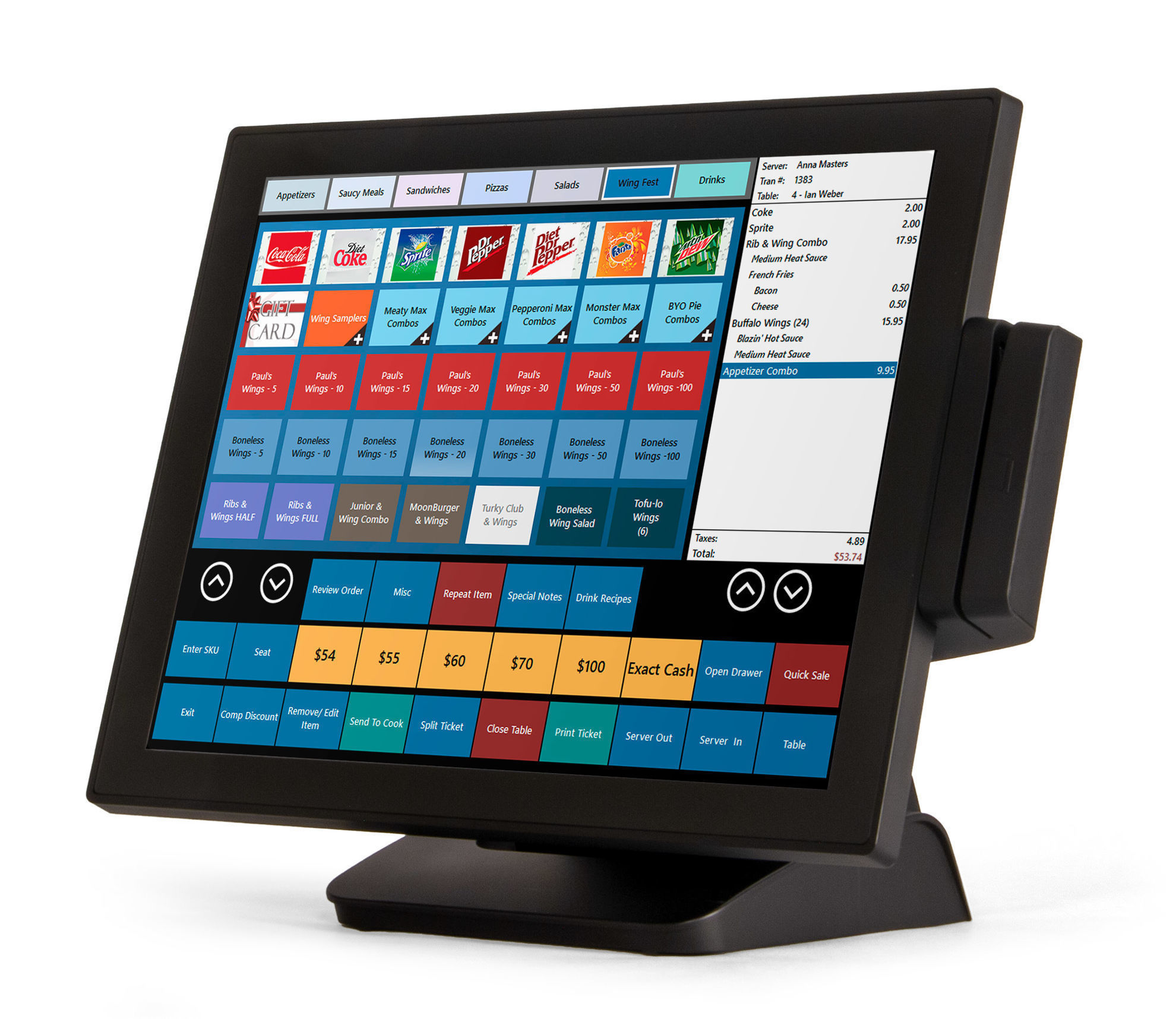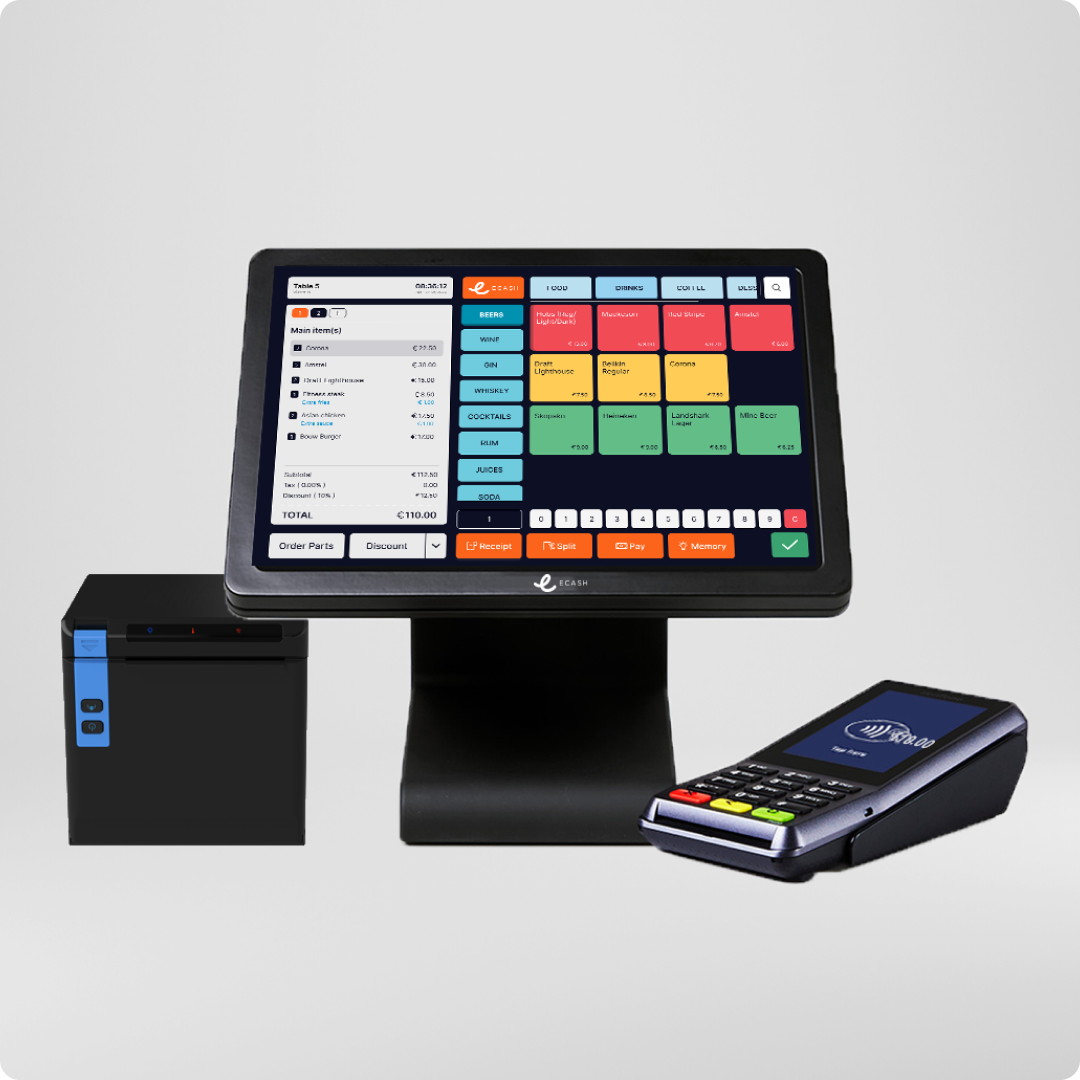Restaurant POS Software vs. traditional systems: Which delivers better ROI?
Understanding the Significance of POS Software in Modern Retail Operations
In today's retail landscape, the function of POS software has come to be significantly considerable. These systems have changed from basic sales register to multifaceted tools that enhance numerous aspects of operations. They not just simplify deals yet likewise give insights that can shape company approaches. Recognizing how these systems impact customer experience and supply monitoring is essential for any seller looking for to continue to be affordable. The effects of these developments warrant more exploration.
The Advancement of POS Software: From Transaction Handling to Comprehensive Solutions

Enhancing Client Experience Via Advanced POS Includes

Simplifying Supply Management With Integrated POS Systems
Integrated POS systems play a crucial role in streamlining inventory management by automating processes that traditionally needed substantial hand-operated initiative. These systems make it possible for retailers to track inventory degrees in genuine time, getting rid of inconsistencies that commonly arise from hands-on supply matters. With features such as barcode scanning and automated supply replenishment signals, services can preserve perfect supply degrees without overstocking or stockouts.Furthermore, integrated POS systems facilitate exact forecasting by evaluating historic sales information, enabling sellers to make informed buying decisions. This anticipating ability helps organizations adjust to transforming consumer needs and seasonal patterns more effectively.Additionally, the centralization of supply information throughout several sales networks improves visibility, enabling stores to manage their stock a lot more efficiently. Eventually, the integration of POS systems into stock administration streamlines procedures, decreases human error, and adds to enhanced earnings.
Real-Time Sales Tracking and Reporting for Informed Decision-Making

Precise stock monitoring lays the groundwork for efficient sales tracking and reporting. Real-time sales tracking enables sellers to keep track of sales efficiency as it occurs, supplying instant insights into client acquiring patterns and patterns. This ability enables businesses to respond swiftly to fluctuations sought after, maximizing supply degrees and decreasing overstock or stockouts.Moreover, incorporated POS systems assist in the generation of in-depth reports, highlighting crucial metrics such as sales by category, time periods, and specific products. Such coverage capabilities empower stores to make data-driven choices, identifying effective techniques and locations needing enhancement.
The Duty of POS Software in Consumer Relationship Administration
POS software plays a crucial duty in improving customer partnership administration by enabling merchants to execute individualized advertising methods. By evaluating client data, businesses can customize promos and communications to fulfill private preferences. Furthermore, these systems facilitate the advancement of boosted loyalty programs that encourage repeat organization and reinforce consumer engagement.
Personalized Marketing Approaches
As sellers significantly seek to improve consumer commitment and engagement, customized advertising and marketing techniques have actually become an essential element of efficient consumer relationship management. POS software plays a crucial role in this process by gathering and examining consumer information, enabling merchants to customize advertising and marketing initiatives to specific preferences and buying actions. By leveraging understandings from purchase histories, retailers can create targeted promotions and customized interactions that reverberate with clients, fostering a deeper connection. Furthermore, the combination of POS software with client relationship administration systems permits smooth tracking of customer interactions, guaranteeing that advertising techniques remain relevant and prompt (Restaurant POS Software). This data-driven strategy not just boosts consumer complete satisfaction however also drives sales and encourages repeat company, strengthening the retailer's market setting
Improved Commitment Programs
Sellers are why not try this out significantly recognizing the value of loyalty programs in fostering long-term consumer partnerships and improving general engagement. POS software plays a vital role in the growth and administration of these programs, allowing merchants to track customer acquisitions, preferences, and behaviors properly. By leveraging information analytics, services can create tailored benefits and incentives that reverberate with private customers, consequently enhancing engagement in loyalty programs. In addition, POS systems allow smooth combination with mobile apps and digital systems, promoting simple accessibility to benefits and promos. This not just enhances customer complete satisfaction yet also drives repeat service. Inevitably, POS software encourages sellers to grow deeper connections with their customers, transforming occasional consumers into dedicated patrons with targeted and purposeful involvement approaches.
Incorporating POS Systems With Shopping Platforms for Omnichannel Success
To attain true omnichannel success, seamless combination in between point-of-sale (POS) systems and shopping systems is crucial. This integration allows stores to merge their supply management, ensuring that product accessibility is precisely mirrored throughout both online and physical shops. Customers take advantage of a cohesive shopping experience, where they can quickly switch over between networks without experiencing discrepancies.Furthermore, integrated systems assist in real-time information sharing, enabling services to examine client habits and choices better. This data-driven approach allows retailers to tailor marketing methods and maximize supply levels, ultimately enhancing customer complete satisfaction and driving sales.Additionally, the ability to process transactions throughout systems streamlines procedures, lowering the threat of errors and improving overall performance. As merchants significantly take on omnichannel methods, the assimilation of POS systems with shopping systems remains an important consider achieving sustainable development and keeping competitive benefit in the dynamic retail landscape.
Future Trends in POS Modern Technology and Their Influence On Retail Procedures
As retail operations advance, future patterns in POS modern technology are readied to reshape the landscape significantly. The rise of cloud-based options, developments in mobile POS systems, and the benefits of AI assimilation are among the vital advancements anticipated to boost performance and customer experience. These improvements promise to enhance procedures and cultivate a much more vibrant retail environment.
Cloud-Based Solutions Increase
With the raising reliance on modern technology, cloud-based POS solutions are transforming retail procedures by providing improved adaptability and scalability. These systems enable retailers to access real-time information from anywhere, assisting in much better decision-making and consumer service. By leveraging cloud framework, companies can lower in advance costs connected with equipment and software installments while ensuring seamless updates and maintenance. Additionally, cloud-based options sustain multi-location monitoring, permitting sellers to synchronize inventory and sales across various electrical outlets effortlessly. This adaptability is necessary in today's hectic market, where consumer preferences change swiftly. As even more stores take on these solutions, they can anticipate enhanced operational effectiveness and a much more responsive method to market needs, inevitably boosting client satisfaction and commitment.
Mobile POS Innovations
The evolution of retail innovation remains to form procedures, particularly with the rise of mobile POS developments. These systems enable retailers to refine purchases anywhere within the shop, boosting client engagement and streamlining checkout procedures. Mobile POS solutions boost stock management by allowing instant accessibility to supply levels, aiding team help customers a lot more effectively. Furthermore, they help with individualized shopping experiences via integrated consumer data and commitment programs. As mobile phones become increasingly innovative, merchants are embracing features such as contactless repayments and electronic receipts, furthermore enhancing the acquiring trip. The shift in the direction of mobile POS not only enhances functional performance but additionally aligns with the expanding customer preference for ease, making sure that sellers continue to be competitive in a quickly evolving market.
AI Combination Advantages
AI integration represents a transformative jump in POS technology, using retailers a myriad of benefits that improve functional efficiency and customer experience. By leveraging maker learning algorithms, stores can evaluate buying patterns and maximize inventory management, decreasing waste and stockouts. Additionally, AI-powered analytics offer tailored marketing suggestions, allowing targeted page promos that boost client involvement and commitment. In addition, chatbots and digital aides streamline client service, enabling quicker resolution of inquiries and enhancing the total buying experience. Predictive analytics can additionally anticipate demand patterns, enabling smarter staffing and source allocation. Ultimately, the assimilation of AI in POS systems encourages merchants to make data-driven choices, promoting an affordable edge in an ever-evolving retail landscape.
Regularly Asked Concerns
What Are the Costs Linked With Applying POS Software?
The expenses related to implementing POS software can consist of software licensing charges, hardware expenses, installment charges, training prices, and continuous maintenance. Each aspect contributes to the click here for more info general financial investment required for an effective implementation.
How Can Small Retailers Advantage From POS Systems?
Little stores can gain from POS systems through improved purchase effectiveness, structured supply management, and improved client insights. These systems make it possible for far better decision-making, ultimately bring about increased sales and customer satisfaction in affordable markets.
What Equipment Is Required for a POS System?
A typical POS system requires necessary equipment components, including a touchscreen monitor, money drawer, barcode scanner, invoice printer, and settlement terminal. These elements interact to assist in reliable purchase handling and stock administration for stores.

Can POS Software Be Customized for Particular Retail Demands?
POS software can indeed be tailored to satisfy specific retail requirements. Restaurant POS Software. This flexibility permits services to tailor functions, user interfaces, and reporting devices, improving operational performance and providing a much more customized experience for both team and customers
Just How Safe Is Customer Data in POS Systems?
The protection of customer information in POS systems differs extensively. Numerous systems apply file encryption, safe and secure access controls, and routine updates, yet susceptabilities can still exist, requiring continuous vigilance and positive procedures from sellers to safeguard delicate info.